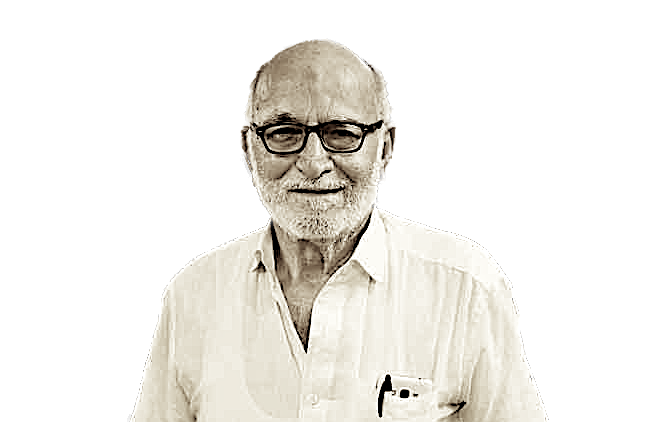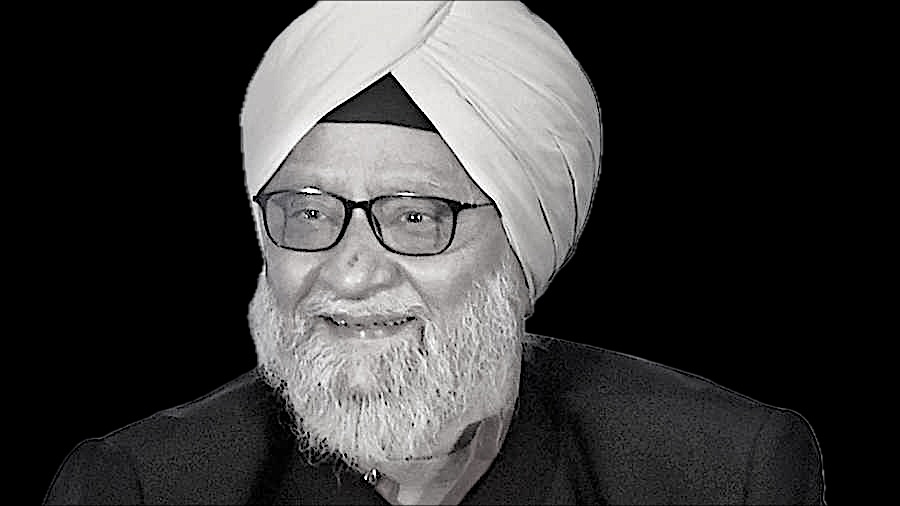There are times when a loss feels personal. Gulam Abbas Moontasir’s death brings that realisation. I cannot recollect watching the basketball superstar at play. Nor did I ever interact with him in my days as a sports writer. And yet, when I woke up to news of icy hands embracing Abbas, the churning in the gut and the ache in the heart were indescribable.
For, long before the NBA stars came to our drawing rooms, Moontasir’s court craft and personality drew crowds to Basketball courts across the country. At a time when Hockey and Cricket had gained ascendancy, his contemporaries and he kept Basketball afloat with their talent. There were attempts to brand him a stormy petrel but he was much more than that.
The handsome Moontasir’s rise from the Nagapada neighbourhood in Bombay to lead the Indian team and be a part of the Asian All-Star team in the 70s is nothing short of inspirational. Inspired by an American missionary and his brother to play the sport, this son of a carpet merchant brought a never-say-die attitude to the court and to the teams he played in.
By all accounts, he tried to win all the time. With every inch of him, from head to toe, he would hustle. And he was unapologetic for that. He may have been mercurial but never without reason. And yes, he paid a price for speaking his mind out to referees he believed had made wrong judgement calls during a match. Yet, he never changed that trait of his.
There can be no doubt that, with his charisma, he could well have been a bigger rockstar had he been playing today. Just one story, document the in the venerable Illustrated Weekly of India, will suffice to illustrate how towering the first hoopster to get the Arjuna Award was in the Indian Basketball firmament.
He was 33 and not invited to the selection trials for the Indian team was due to play the Asian Basketball Confederation championships in 1975. The Ministry of Education, overseeing sport in the country, told the Basketball Federation of India that it would not clear participation of the teams if India did not finish in the top four in the competition in Bangkok.
Forced to call Moontasir to the trials, one of the federation officials told him he was too old to play for India. Moontasir reminded the official that Pele was 30 when he played for Brazil in the 1970 World Cup finals. The official asked him if he thought he was Pele. “No, sir, I am not, but neither are the other players Jairzinhos,” Moontasir shot back.
For the first, and till date only, time, India finished fourth with victories over Malaysia, Kuwait and Sri Lanka in the group league and over the Philippines and Thailand in the Championship round robin featuring the top six teams. India’s losses were against China, Japan and South Korea.
It is another matter that he was not picked to play the next National Championships. He would give his everything to things he took up and did not worry about problems and things over which he had no control. He drew from his love for the sport like few others to keep playing for Central Railway till he turned 40.
I will remember him as a feisty competitor who gave no quarter and asked for none on the Basketball court and as a warm human being off it. I will remember him as a loveable character, a wonderful athlete who did not suffer the fools, a great team-man who put team above self at all times, and as motivation for generations of basketball players.
How India will carry forward Moontasir’s legacy? With the powers-that-be also not recognising his contribution to the sport and not building him up as a giant in Indian Basketball history – we didn’t see a condolence message on the Basketball Federation of India Twitter or Instagram handles – it will be tough to visualise his legacy being nurtured, let alone built upon.
This is a tough one, basically because today’s generation of fans is being weaned on NBA and has little time for legends of Indian sport. And with precious little footage, it does get difficult to find ways to embed these stars in the minds of the fans. It is a reflection of the changes being ushered in by the society around us, with digital media leading the way.
Yet, those who watched him play or have read and heard about his exploits all those decades ago will be left to cherish his memories and find ways in which to build on his legacy. Even if that does not happen, Ghulam Abbas Moontasir’s aura was such that his place in the pantheon of Indian sports stars cannot ever be taken away.
Image: Courtesy Mid-Day, Mumbai




Lovely piece Raj, as usual. Moontasir and his fellow hoopsters enthralled crowds at Nagpada, and left their imprint on young minds, including mine.
They made the game unbelievably popular in Bombay. The area also had the YMCA swimming pool where top swimmers of the 70s came and did their regular training. Thanks for relieving old memories of that wonderful era.
Thank you so much, Dada. Abbas Moontasir’s aura transcended sport and generations, did it not?